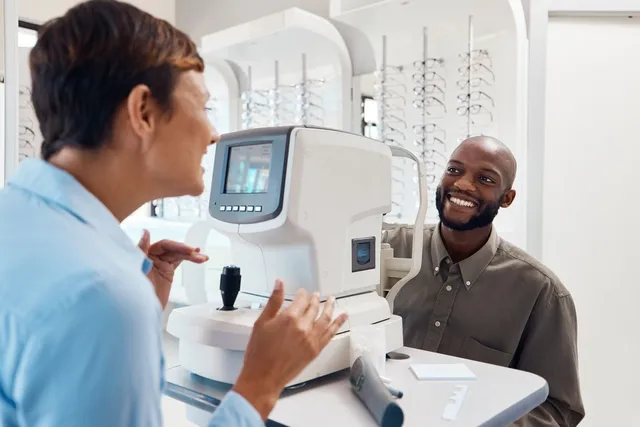Imagine walking into a buffalo grove corneal abrasion scenario. Your eye is painful, red, and watering. You’re scared – who do you turn to? An optometrist or an ophthalmologist? The two titles may sound similar, but they represent distinct professions within the eye care field. Don’t worry, this post will help demystify the difference. We’ll dive into their unique roles, training, and what each can offer in terms of eye care. Hold on, relief is on the way.
Who are Optometrists?
Optometrists are eye care professionals. They earned a degree in optometry. Their expertise is primarily in identifying vision problems, prescribing corrective lenses or contacts, and detecting specific eye anomalies. Their skills are akin to your family doctor – for your eyes.
Who are Ophthalmologists?
Ophthalmologists are the surgeons of the eye world. They graduated from medical school. Their training allows them to diagnose and treat all eye conditions, perform eye surgeries, and prescribe medication. If your eye is the city, they are the architects and construction crew.
Which One Should you Choose?
The decision depends on your unique situation. For a general eye check-up or vision issues, an optometrist will serve you well. However, if you suspect a deep-rooted eye problem or require surgery, you’d want to see an ophthalmologist. Imagine having a minor cold versus needing a complex surgery – you’d see a general practitioner for the former and a specialist surgeon for the latter. The same logic applies here.
Can an Optometrist Treat a Corneal Abrasion?
Yes, and no. An optometrist can diagnose and provide initial treatment for a corneal abrasion. However, if the situation is severe or fails to improve, an ophthalmologist’s intervention may be necessary. Think of it like a cut on your skin – a nurse can clean and bandage it, but if it’s deep enough, you’ll need a surgeon to stitch it up.
Conclusion
In a nutshell, both optometrists and ophthalmologists play vital roles in maintaining our eye health. They are part of the same eye care team, just with different responsibilities. Next time you’re facing a corneal abrasion scenario or any other eye-related issue, remember this guide. Your eyes are precious. Trust them in the right hands.





